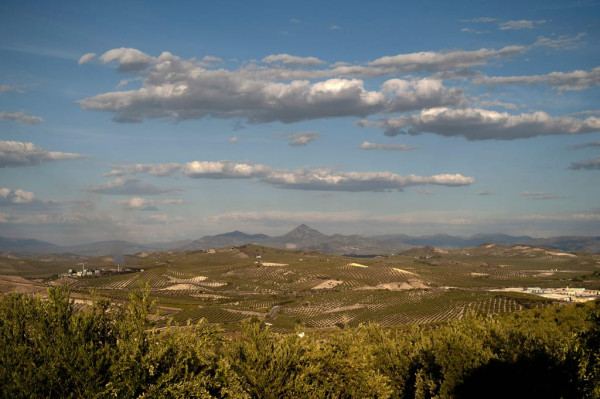ECB staff in uproar after lunch canteen downgrades olive oil
A staff mutiny over the quality of olive oil served at European Central Bank canteens was narrowly avoided after in-house caterers acquiesced to demands to bring back extra virgin options to the table.
Staffers on the central bank’s internal messaging board — many appearing to hail from Italy — railed in March against a sharp drop in the quality of the olive oil being served with lunchtime salads in the Eurotower and Japan Center offices in Frankfurt, according to screenshots shared with POLITICO.
“Since few weeks we have Sansa Oil,” one staffer wrote, referring to the low-grade oil made from olive pulp that generally retails for half the price of extra virgin, and is so unappetizing it is apparently often used as fuel for biomass boilers. “This for me is totally crazy,” the staffer fumed.
Employees also complained that the new oil, despite its lower quality, was more expensive — a blight on the ECB's commitment to keep its own lunch inflation in check.
As the saga unfolded, blame was attributed to the new catering service, Aramark, brought in by the ECB last December.
In emailed comments to POLITICO, Aramark said that while prices “may appear significantly higher than before,” portions were priced by weight in keeping with a contract with the ECB. It didn’t say whether the policy extended beyond the canteens in Eurotower and Japan Center.
The upset comes as the ECB has been emphasizing the role that supply-side factors beyond its control played in fueling inflation in 2022, such as the spike in the price of gas caused by Russia's invasion of Ukraine.
The view is that monetary policy is historically better positioned to deal with “demand shocks" driven by excess money supply than it is with supply-side shocks, which it tends to “look through.”
The staff chatter appeared to recognize this. “The ECB should have more controls on what we are offered for the price we (including the ECB subsidy) pay,” one intranet user wrote.
Olive oil polycrisis
The olive oil brouhaha also comes shortly after ECB staff took issue with remarks by ECB climate czar Frank Elderson that some of them needed “reprograming” to be more conscious of "climate risk" — the idea that rising global temperatures present a distinct economic challenge and financial stability risk.
This is apt since the rising price of olive oil, which has more than doubled in the last 12 months, is largely due to extensive droughts in the key growing regions of southern Europe.

The affair thus brings home one of the starkest examples of the risks that climate change poses to prices — and the risks that banks run in lending to affected producers and merchants.
Separately, it has also revealed that the North-South tensions that have long divided Europe have made their way into one of its premier institutions, with consensus over the urgency of the “Olive Affair” split squarely along that fault line.
“I am here to fight for Europe and not to fight for a three star restaurant at work,” said one employee with a Germanic-looking name. The southerners, on the other hand, argued that Europe’s interests could scarcely be protected on a shoddy diet.
“You might have heard the term, ‘mens sana in corpore sano,’” wrote one Italian, using the Latin phrase for "a healthy mind in a healthy body." Indeed, what good is a monetary union without a unified culinary policy?
Crisis resolution
The good news for ECB lunchers is that thanks to the heroic intervention of a senior facility services assistant, extra virgin oil was restored to canteens earlier this month.
POLITICO understands, however, that a concerning precedent may have been set. Complaints are once again pouring in, albeit now about the quality of the canteen’s maple syrup.
Various other intranet posts contend that the food under the new caterer is generally worse, less varied, and up to twice as expensive.
“The staff is clearly a loser in this game, I hope at least the ECB has made some substantial saving on the new procurement, otherwise the decision making would be difficult to understand,” a staffer (also Italian) said. Another raged that they could tolerate Aramark’s monopoly no longer and had instead embraced the free-market option of buying lunch in town.
Evidently this is one crisis central bank officials cannot simply “look through.”